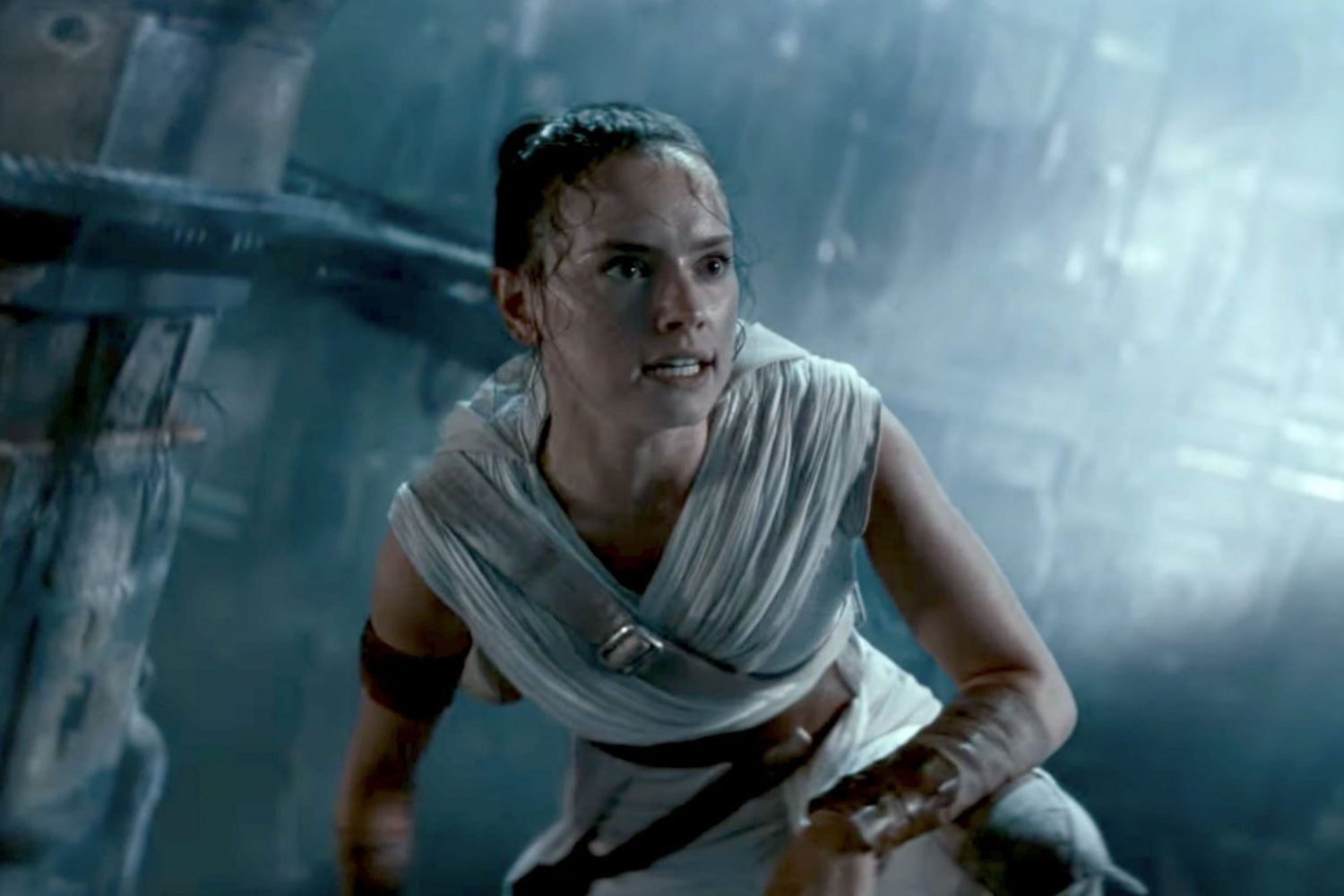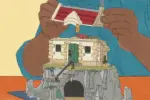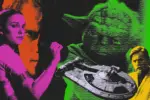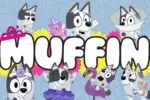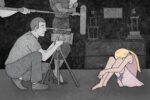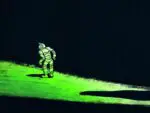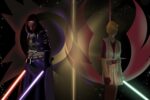I was in elementary school just before being a nerd became cool. I still remember being told “Star Wars” was stupid in fifth grade by a boy named Ryan. Having now seen “The Rise of Skywalker,” I wish I could go back and tell myself to appreciate “Star Wars” the way I had known it growing up. As nerdy as the movie franchise may have been, they were still iconic films and Disney’s purchase of them, along with future rights to all George Lucas films, was met with great anticipation. Unfortunately, the darkest force was not Darth Vader, but the Disney remakes.
“The Rise of Skywalker” is not a bad film. It does what a final movie is supposed to. It ends the trilogy on a hopeful note, leaving our protagonists feeling resolved and knowing their efforts have paid off. Sitting in the theater, however, I would disagree. After two previous movies from the franchise stated that Rey’s parents were “nobodies,” I found myself believing it. However, “The Rise of Skywalker” tells us that not only is Rey’s lineage important to the plot, but that it is the backbone of the entire series. Her grandfather, Emperor Palpatine, has taken over the role of villain while Kylo Ren insists that the role is his. While the reappearance of Palpatine does require a suspension of disbelief, it’s great to see him return on the big screen as a villain; he was easily one of my favorite parts of the movie.
“The Rise of Skywalker” contains contradictions and plot holes, but it also acknowledges past themes of “Star Wars,” such as the importance of coming together in the name of peace. The movie series is a story of friendship, rebellion and hope: a strong theme in “The Rise of Skywalker,” which ensures audiences pay close attention to George Lucas’ vision. Or at least, it tries to. Episode Nine shows people of different backgrounds can come together to make something great.
Throughout the film, Rey, Finn, Poe, and for one movie, Rose, use their unique experiences to come together and find the light in the world. Poe Dameron, who is appointed command at the end of the film, insists his fellow rebels have hope. He believes civilians will join the rebels in their fight against the dark side. In mid-battle, we learn that he was right as the rebels are armed by thousands of other civilians. This seems like a last-minute stroke of luck after they are shown winning, falling through gravity, winning, and losing again before backup arrives. Regardless, hopeful music plays as the rebels destroy thousands of ships and the protagonists come together to defeat the villain.
Emperor Snoke — I mean, Emperor Palpatine (or maybe Kylo Ren) serves as a strong villain. It’s not that “Star Wars” hasn’t killed off villains earlier in the series (see Darth Maul), but the transitions between Disney’s “Star Wars” villains are sloppy. After spending two and a half films painting Kylo Ren as the bad guy, I wasn’t ready to accept his redemption arc. While the sudden change makes for an interesting film, it doesn’t make sense. The writers ask for too much forgiveness with too little work on Kylo Ren’s part. At no point does he apologize for murdering children, destroying planets or ripping through Finn’s body like a sheet of paper.
“The Rise of Skywalker” suggests that a redemption arc can occur in the last half hour of a final movie and still be justified. You may argue that this is exactly what occurs in the original movies. But if the original films show the dangers of the dark side, and the prequels display the dangers of the light side, what do the Disney films say? “The Rise of Skywalker” is a nod to classic “Star Wars” movies and character choices while also spitting in the face of those who wrote it. If Kylo Ren could ignore his guilt and suffering throughout the plot of two movies, does his change at the end of Episode Nine display any real growth?
However, in good old fashioned jedi-style, Kylo Ren realizes that he does regret murdering his father after his mother dies, even going as far as apologizing to Han Solo’s ghost. Afterwards, he throws his lightsaber into an ocean for seemingly no reason. While “The Rise of Skywalker” brings together a group of unique people in the name of peace, it does not pay tribute to the care and detail of the original films.
Disney’s purchase of Lucasfilm was not in complete vain because of films like “Rogue One,” but the plot of Rey, Poe and Finn was underwhelming. What started as an interesting plot featuring new characters aged into the same, recycled character arcs of its predecessors. Rey had a mysterious background, which the films made sure to remind us of several times. Unfortunately, her enigmatic origin was undone by the reveal of her lineage in Episode Nine. It turned out Rey, a lone fighter who believes in the power of the force, was not the Everywoman after all as she ends up defying her family’s evil lineage to master the force.
The similarities between Rey and Luke were clear from the beginning, but with the final film it seems like she is a carbon copy, and the slim development of Rey’s character did not offer anything unique. The biggest personality features she has is her desire to see her parents again and understand why they left. The seemingly important discovery is then revealed and digested within 15 minutes of the unnecessarily long film in favor of the protagonists walking through sand. Perhaps Episode Nine’s most defining statement is not to trust Disney so easily.
The most unique character of the entire series, Finn, is reunited with other deserts when the movie reminds us of his past as a storm trooper. I believe his character arc could have been the most interesting of any of the characters — he is represented as sweet, funny and emotional without being too much like Kylo Ren. Poe, Rey and Rose each have a strong relationship with Finn. Poe’s relationship with him, in particular, is a sign of both characters’ growth. Unfortunately, their relationship is overlooked in favor of quick, emotional reveals that never came to a full conclusion, much like the film’s writing.


